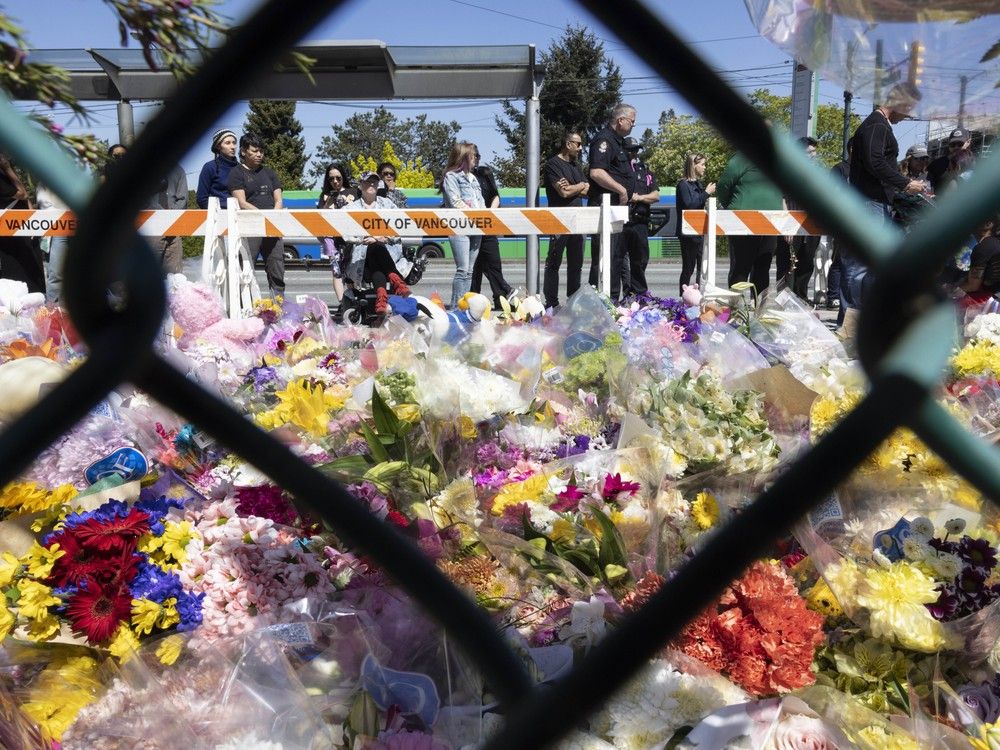
The more than 20 people injured at the Lapu Lapu Day festival in Vancouver and relatives of the 11 people killed are limited in the compensation they can claim under B.C.’s no-fault car insurance program.
No-fault ended the right for the injured to sue at-fault drivers four years ago, unless the driver is convicted of certain criminal offences, including murder. If the driver ends up being convicted of murder, victims can then sue the driver, but not ICBC.
It’s unlikely the injured parties would be compensated for all losses in such a lawsuit, since the driver, not ICBC, would have to pay, according to Greg Phillips, a Vancouver personal injury lawyer and president of the Trial Lawyers Association of B.C. If a driver has no assets, the victims may go through a costly and time-consuming lawsuit only to be unable to collect, he said.
“Long story short, if the at-fault driver has no money, there is no recovery (of losses),” he said.
Kai-Ji Adam Lo was charged with eight counts of second-degree murder after someone drove an SUV into a crowd of people leaving at the end of the daylong festival at 41st Avenue and Fraser Street on April 26.
Eleven people between the ages five to 65 were killed and more than 20 others — moms, dads and at least two children, boys aged two and 11 — were injured in the massacre that stunned the province. Lo, 30, has been identified by health officials as someone being supervised under the Mental Health Act and is undergoing a psychiatric assessment while in custody.
If he’s not convicted or found not criminally responsible due to a mental disorder, the survivors and families of the deceased can’t sue for losses, even though ICBC insured the at-fault driver’s vehicle.
“No-fault means that victims have no right to sue and must accept whatever fixed benefits are set out in the legislation, regardless of the actual loss,” Phillips said in an email.
Other offences that can trigger a right to sue include manslaughter, dangerous operation of a vehicle and driving while impaired by alcohol or drugs, he said.
While a lawsuit against a convicted driver can include damages for pain and suffering, capped by Canadian courts at $400,000 for the worst of injuries, victims can expect nothing for additional punitive damages meant to punish an at-fault driver “because the courts tend to see the criminal sentence as punishment enough,” said Phillips.
Under the old system, families could have brought a claim under the Family Compensation Act for their actual losses, for example, what the loss of a parent would cost the child without the parent contributing to raising him, he said. That could include loss of financial support, loss of an eventual inheritance and the cost of providing child care and doing housework, as well the loss of guidance, care and companionship — all worth hundreds of thousands of dollars, he said.
Instead, under no-fault, spouses and dependants of those killed in car crashes get death benefits set by ICBC, said Phillips. For example, children, depending on their age, get between $36,994 and $69,764 each, “likely a fraction of what the child would lose,” he said.
ICBC has set up a dedicated team to help the festival victims, families and witnesses to access available financial support, spokeswoman Lindsay Wilkins said in an email. That includes up to $4,440 for each family member for grief counselling and around $10,700 for funeral expenses, “which is above and beyond what was previously available under the legal-based model,” and the set-amount death benefits for children, spouses and other family members, she said.
Injured persons can get payments from ICBC to cover certain recovery expenses.
“People receive supports immediately, without having to sue,” said Wilkins.
ICBC says it covers medical expenses, wage loss of up to $70,000 a year (calculated from a person’s yearly salary up to $119,000 minus government deductions and 10 per cent), and other recovery-related costs like personal-care assistance and travel expenses. But it doesn’t pay for “loss of enjoyment of life,” it said.
ICBC has said revamping the old system was needed to cut $1 billion-plus a year in financial losses and it said it has cut premiums by 20 per cent and issued $110 rebate cheques like the ones sent out this spring.
ICBC covers 12 or 25 treatments for each of the therapies, including physiotherapy, chiropractic care and massage therapy, for the first three months and after that with a person’s doctor’s approval. ICBC may order an independent medical exam by an ICBC-appointed doctor before it continues payment long-term.
Victims of crimes in B.C. are eligible under the crime victim assistance program for “a range of benefits to assist victims, immediate family members of victims and certain witnesses in coping with the effects of violent crime,” according to the program’s website.
But victims of car crashes are excluded because of access to the “same or similar benefits” from ICBC.